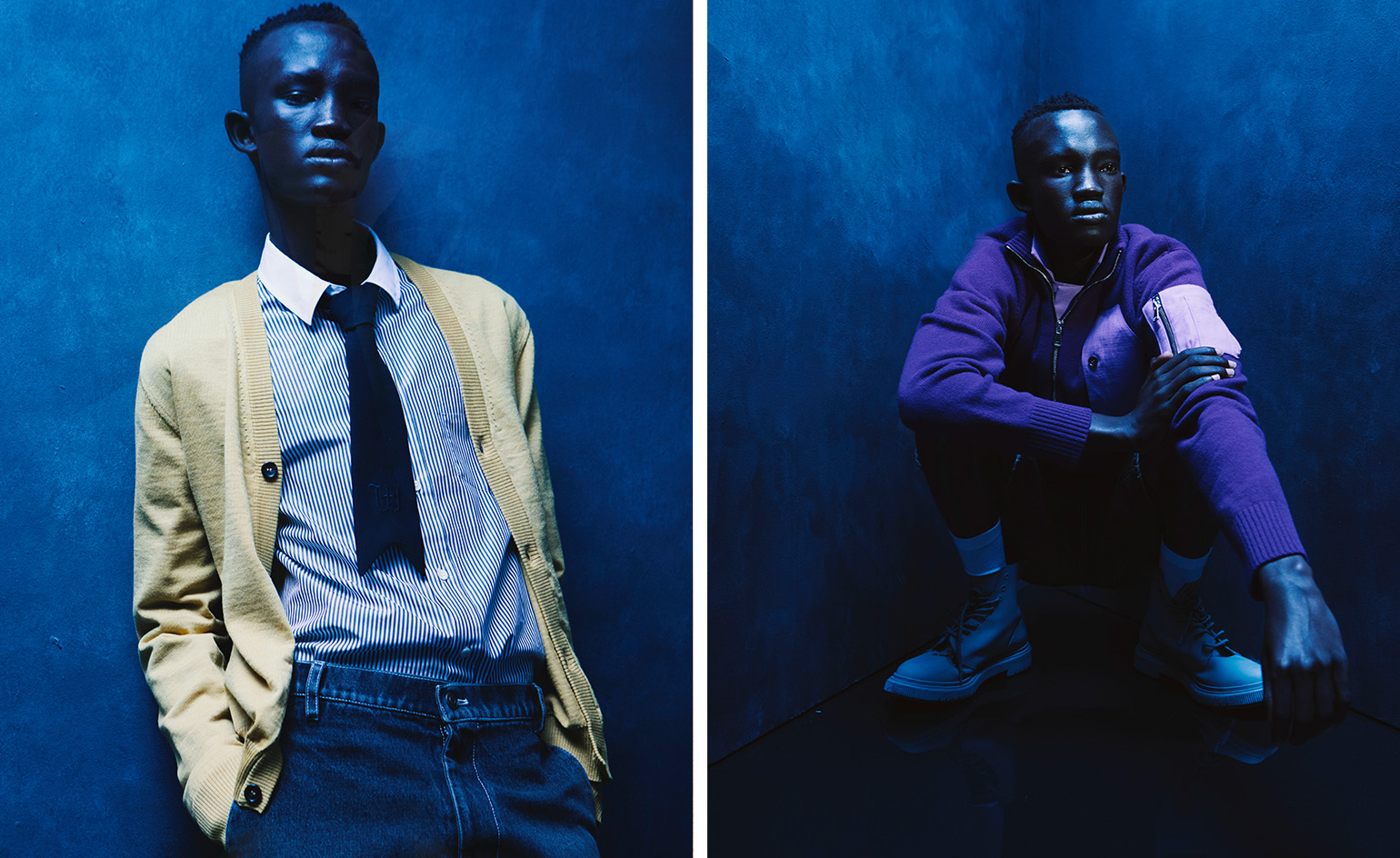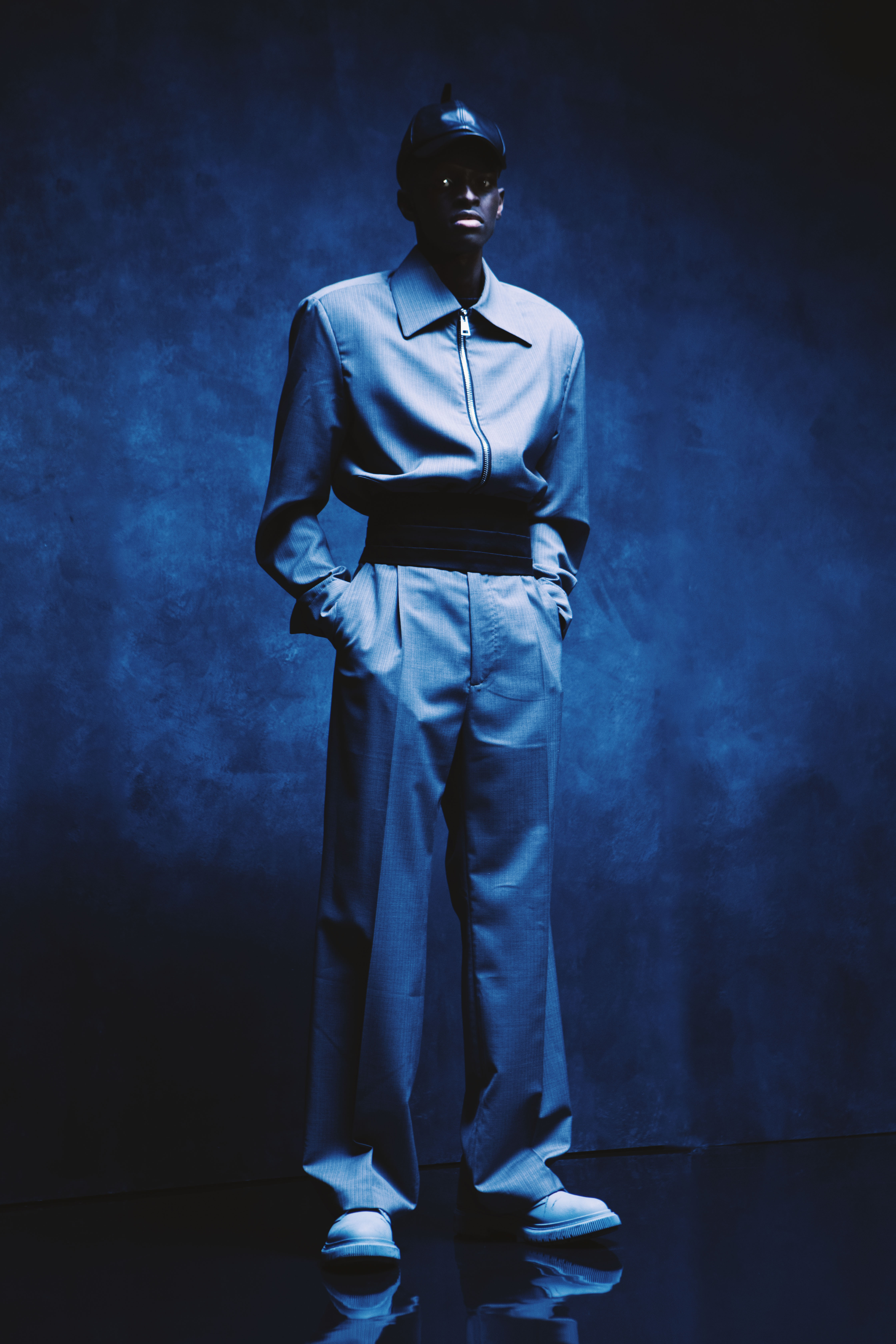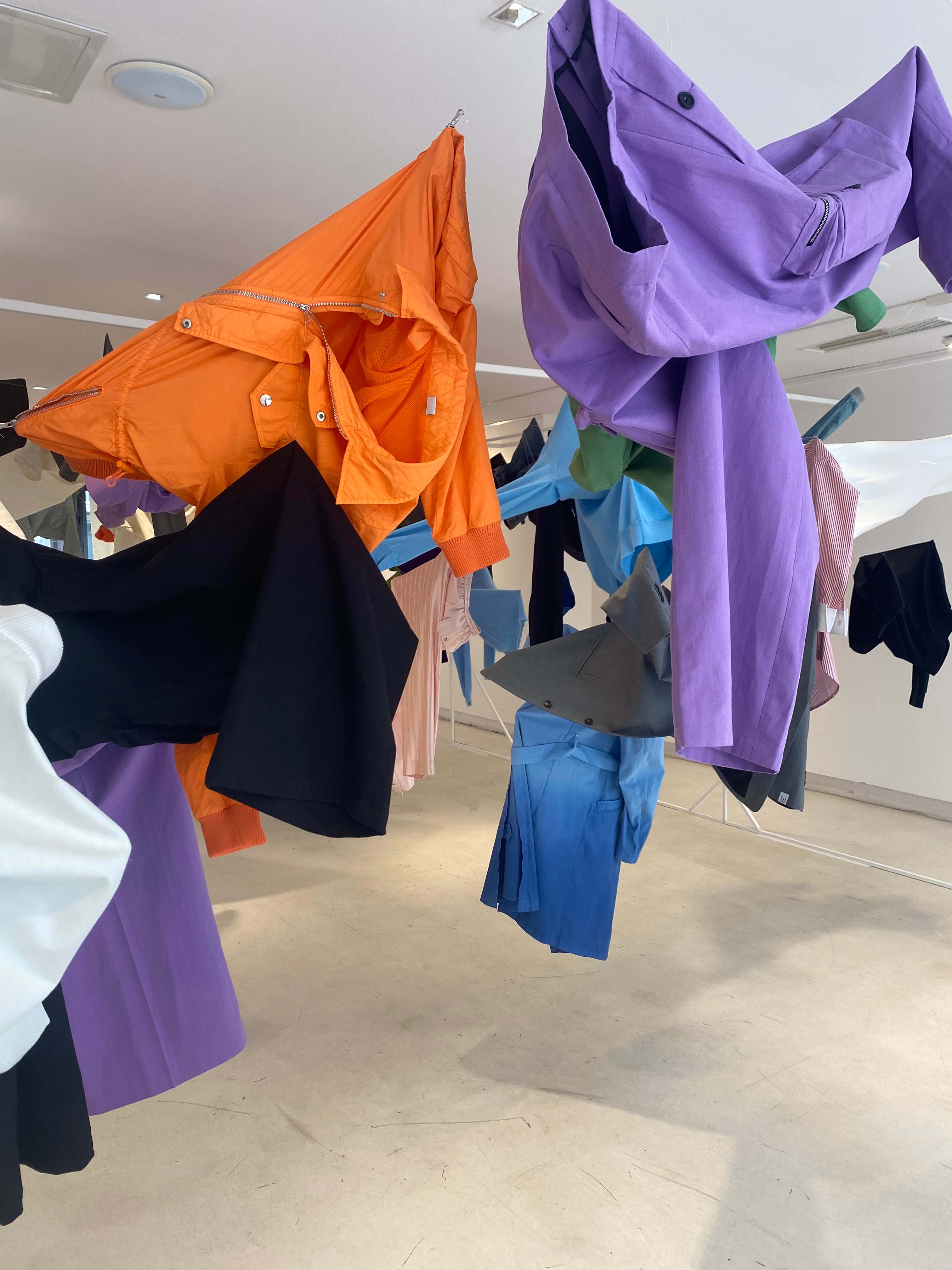Winnie, the under-the-radar label reinventing menswear staples
Following the presentation of his S/S 2023 collection in Paris last month, designer Idris Balogun talks to Wallpaper* about his LVMH-prize winning label Winnie, which draws on a Savile Row past to reimagine tailoring for the present day

Receive our daily digest of inspiration, escapism and design stories from around the world direct to your inbox.
You are now subscribed
Your newsletter sign-up was successful
Want to add more newsletters?

Daily (Mon-Sun)
Daily Digest
Sign up for global news and reviews, a Wallpaper* take on architecture, design, art & culture, fashion & beauty, travel, tech, watches & jewellery and more.

Monthly, coming soon
The Rundown
A design-minded take on the world of style from Wallpaper* fashion features editor Jack Moss, from global runway shows to insider news and emerging trends.

Monthly, coming soon
The Design File
A closer look at the people and places shaping design, from inspiring interiors to exceptional products, in an expert edit by Wallpaper* global design director Hugo Macdonald.
Few fashion designers can boast a pedigree like Idris Balogun’s. Of Nigerian descent, born in New York City, and raised in London, Balogun began his sartorial career on Savile Row, where he became well-versed in the art of tailoring. During his apprenticeship at Hardy Amies, where he studied pattern making and cutting, he met Christopher Bailey, then-chief creative officer at Burberry, whom he joined and worked under, eventually rising to become senior menswear director of the historic house. That led to Balogun being appointed menswear director at Tom Ford, which entailed a move to New York and collaborating with a tightly knit team to articulate Ford's vision.
Several years later and the 29-year-old designer has numerous successes to call his own. His 2019-founded menswear label, Winnie – formerly Winnie New York – was named a joint winner of the LVMH Karl Lagerfeld Prize in June 2022, alongside the label ERL, founded by fellow American Eli Russell Linnetz. Winnie is named in tribute to Balogun’s grandmother, Princess Winnifred Dadem, the driving force and key supporter behind his creative endeavours. It combines utilitarianism, elegance and a feeling of authenticity.
Utility, elegance, authenticity: Idris Balogun’s menswear label Winnie

Winnie S/S 2023.
‘When I started, I didn’t even know what a designer was. I hadn’t a clue that it was a job, that people created ideas and the direction of what a brand was supposed to look like, and sketched a full collection,’ says Balogun. ‘I was in the back, learning how to do button holes and how to draft a pattern for a trouser for someone who has a limp in one leg.
‘My design upbringing really informs what I do on a daily basis,’ he continues. ‘It informs my calling to craftsmanship, my calling to pattern-making, fabrication and textiles – being wooed by wools, mohairs, cashmeres and vicunas, these are all things that coming up on those houses led me to love and that I try to utilise in the formation of Winnie. I try to stay true to my tailoring roots. It’s my ode to Savile Row tradition: wide lapels and cuts.’
Known for its fluid tailoring and reinvention of menswear wardrobe staples, Winnie has become synonymous with impeccable craftsmanship and rich narratives – the backbone for each collection. Balogun recurrently draws from his heritage and the Black diaspora for inspiration. His upcoming S/S 2023 collection is inspired by the Angola-born artist Alida Rodrigues and the dialogue between identity and perception that her work provokes. In sartorial terms, that translates into classics that have been redefined through the use of materials. Virgin wool, cashmere and linen, grown and sourced specifically under Balogun’s supervision, give the collection a fluid and airy feel. Half of the collection is made from linen, chosen for its sustainable qualities; it requires less water, sunlight and maintenance than cotton. This past June in Paris, he presented the clothes via a series of suspended sculptures, where each item appeared like it was floating on air, ‘the removal [of] anatomical structure allowing the individual viewing of the garments in the collection,’ as the notes described.

Winnie S/S 2023 installation in Paris.
‘When I was working at all these beautiful, immaculate places that make beautiful clothes, I couldn’t afford any of them, realistically. It always struck me that these clothes weren’t made for me. I was designing clothes essentially for people not like myself,’ Balogun reflects. ‘That’s not to say that because I want to make clothes that people like me can buy and live with, I have to lower its quality. When I started Winnie, the idea was to create a luxury brand that redefines what luxury is. Luxury doesn’t have to be defined by a price point. To me, it’s about utilising the best means possible to make that garment, whether it means finding fabrications that are ethically sourced or growing your own fibres, or utilising hand stitches and making things by hand as much as possible. With Winnie, I always try my best to make sure that this is something my brother, sister, or cousin, someone in the neighbourhood I grew up with can actually go purchase and wear. If it's [priced] out of this world, that just does a disservice to my experience growing up.’
Balogun’s acute awareness of his past, present and future is exactly what makes Winnie so compelling. In each collection, he has championed new proportions, often oversized in the torso and shrunken at the waist, while consistently presenting garments on both men and women to emphasise their non-conforming quality. Innovative, yet rooted in tradition, Balogun is defining a design language both self-assured and built to last.
Receive our daily digest of inspiration, escapism and design stories from around the world direct to your inbox.
Watch the Winnie S/S 2023 collection film below.
INFORMATION
Pei-Ru Keh is a former US Editor at Wallpaper*. Born and raised in Singapore, she has been a New Yorker since 2013. Pei-Ru held various titles at Wallpaper* between 2007 and 2023. She reports on design, tech, art, architecture, fashion, beauty and lifestyle happenings in the United States, both in print and digitally. Pei-Ru took a key role in championing diversity and representation within Wallpaper's content pillars, actively seeking out stories that reflect a wide range of perspectives. She lives in Brooklyn with her husband and two children, and is currently learning how to drive.